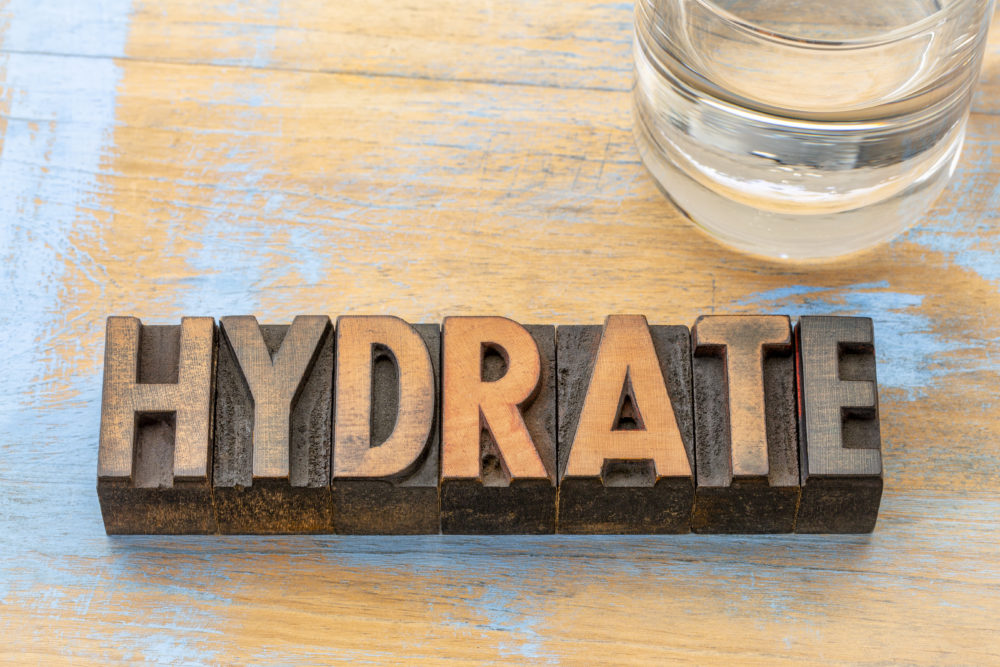On average, the adult human body is approximately 60% water, while the major organs (brain, heart, lungs, kidneys, and liver) can be up to 85%! Even your bones can be up to 30% water. As these stats suggest, water plays an essential role in almost everything your body does – it lubricates joints, flushes body waste, regulates temperature, and cushions vital organs.
As your body acclimates to the ketogenic diet, the kidneys aggressively secrete sodium which pulls water along with it. This produces a diuretic effect that contributes to the several pound weight loss experienced during the first few weeks on Key Eats.

Because you are actively losing sodium, it becomes increasingly important to replace it in your diet with increased intake**. It will help rebalance your sodium and help mitigate symptoms of the keto flu. Sea salt is a great way to supplement as it contains minerals not present in table salt.

Drinking eight 8 oz. glasses of water is usually sufficient for most people following Key Eats. But everyone is different, and your water requirement is dependent on many factors including age, activity level, climate, medications, etc. The point is to just be aware that your water requirement may be different on the ketogenic diet. Plus, our body sometimes has difficulty differentiating between thirst and hunger so there’s added incentive to make sure you stay hydrated.
Factors Affecting Hydration

- Increased Age Make Us:
- More susceptible to dehydration
- Less likely to feel thirst

- Nutrition, Fluid, and Electrolytes
- The Keto Diet increases salt and water excretion
- Increase salt and water intake

- Activity
- Water/salt requirement goes up with exercise/activity

- Alcohol
- Although a liquid, it can contribute to dehydration
- Drink in moderation

- Medications
- Certain meds can lead to extra water loss (diuretics, antihistamines, blood pressure meds)
Signs of Dehydration

- Decreased/dark urine and constipation

- Thirst, dry mouth, dry skin

- Headache

- Dizziness, Fatigue, Confusion

- Rapid heart beat
**Key Eats does not give medical advice, and we recommend you consult your doctor before starting this or any other health program. If you have a medical condition that could be sensitive to increased sodium intake, please consult your doctor.

